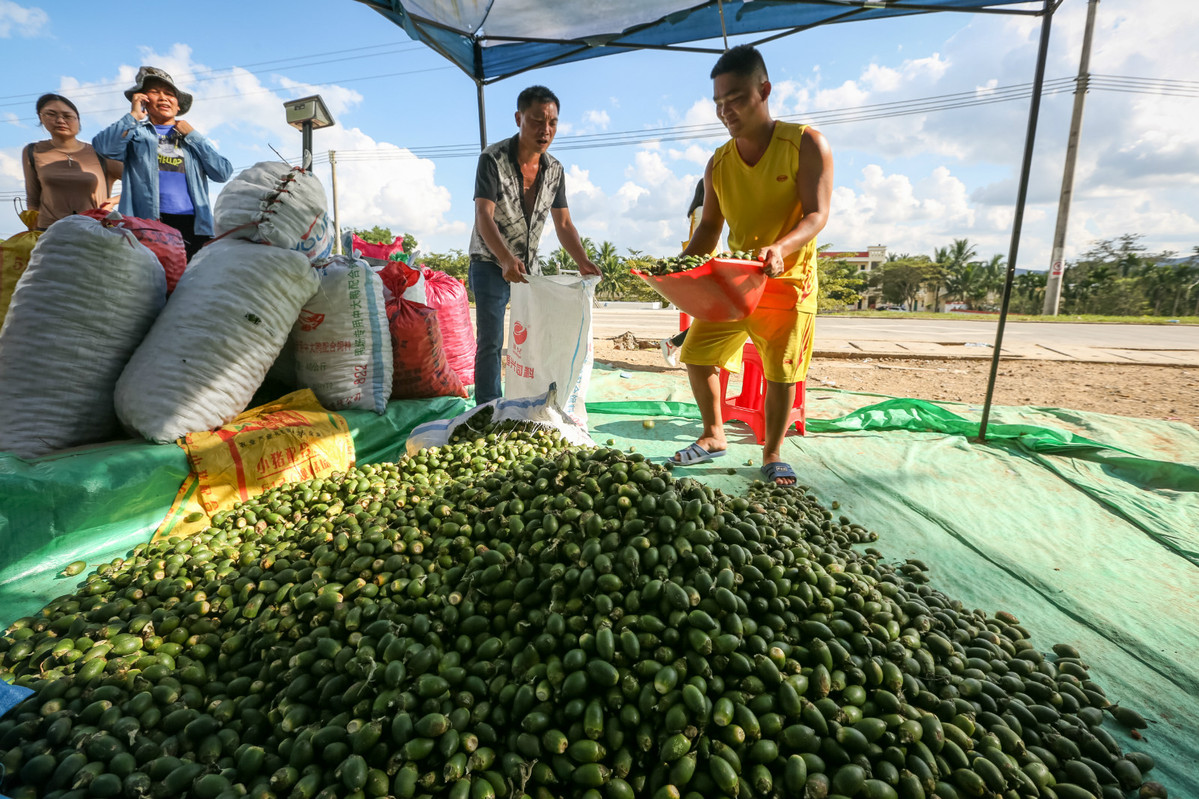Public health warning a tough nut to crack


When the dry season sets in across China's southernmost province of Hainan in November, local farmers will gear up to harvest from rows of areca palms in its vast coastal fields.
Hainan is home to nearly 1.4 million mu (93,000 hectares) of areca palms and supplies 95 percent of total output nationwide, according to local authorities.
The freshly-picked fruits-oval, green and dewy-are briefly boiled and dried up in plants nearby to prolong the preservation before embarking on a long journey to Hunan province in Central China.
There are at least 50 factories devoted to processing areca palm fruits in Hunan province, churning out over 200,000 metric tons of betel nuts each year, or one-fourth of global production, Hunan Daily reported.
The tropical fruits, more commonly named betel, are then soaked in a syrup and alkaline solution, dried again, halved and stoned, and packaged in silver foil for sale. Easily found in roadside shops or large franchises, the betel nuts are chewed throughout the province for their alleged stimulating effect.
About 38 percent of residents in Hunan have a habit of consuming betel nuts. The consumption ratio soars to more than 50 percent for people aged 30-40 in the region, according to a report released by Hunan Betel Food Industry Association.
On March 7, however, the Hunan Betel Food Industry Association released a notice, ordering related enterprises in the province to halt advertisements across all media channels and any form of promotion in public places.
Though Yang Xun, head of the association, said the ban is not tied to rising concerns about the betel nut's role in causing oral cancer, but aimed at regulating the industry, an increasing number of people are waking up to the fact that the widespread consumption contributes to the region's high incidence of oral cancer.
According to Hunan Cancer Hospital, five major medical institutions in Changsha have seen the number of oral cancer patients jump from 305 in 2005 to 2,108 in 2016.
The average incidence of oral cancer in Hunan is 20 times higher than the national rate. Each year, more than 25,000 people die from malignant mouth tumors in the region, Beijing News reported.
Lin Ye, vice-president of Peking University Hospital of Stomatology, said the fruit is often taken with lime powder, and thus damages delicate tissues in the mouth and leads to an increased risk of developing tumors.
In February 2019, the National Health Commission released an action plan aimed at improving oral health across China. It called for campaigns to increase oral checkups in regions where chewing betel nuts is popular.
- From crested ibises to pandas, China lights conservation path
- Plateau poised for world-class copper hub tag
- Xi calls for winning tough anti-graft battle
- Surging flu cases drive up demand for drug
- Nanchang funds 19 free funeral venues after tragedy
- Massive ice sculpture replicates CNS?Liaoning aircraft carrier





































